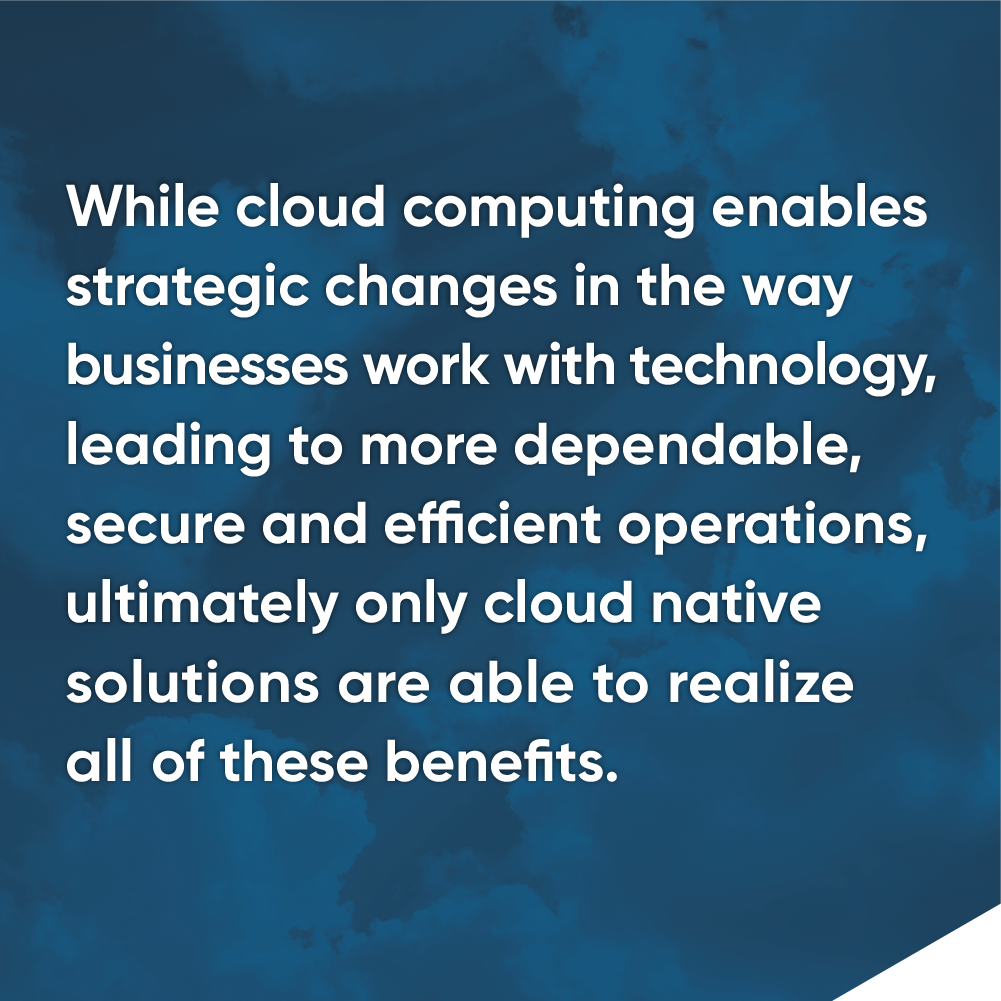Whether we are watching Netflix, asking Amazon Alexa for a weather update or checking our email through Office365, cloud computing has changed the way we consume and create information, and how we interact with technology. This reality has been escalated with the “new normal” of working from home and the implementation of business continuity plans due to the COVID-19 pandemic.

Massive numbers of people are working outside traditional office spaces, resulting in more interactions with business applications on a daily or even hourly basis. With this ramped up evolution in demand and use, it is vital that these applications be dependable, secure and efficient. As businesses look to maximize these elements in their enterprise applications, understanding the difference between “cloud native” and “cloud wrapped” solutions could not be more important when it comes to managing financial assets.
Given all the benefits (and attention) associated with it, many tech vendors are looking for ways to identify their offering as “cloud-based” even if it was not the original design for the service. And that origin is the critical difference: a non-native solution skips the hard work of design and building to the rigorous specs of the cloud, and instead relies on a newly created web-based front end attached to legacy application architecture. These are considered cloud wrapped solutions. Though they may sound similar, these are vastly different than cloud native solutions.
Cloud wrapped solutions often still have many of the same problems as their legacy progenitors. They are harder to support and maintain. Innovation is limited and higher costs will eventually be passed to you, the client. Cloud native solutions have a totally different upgrade cycle. Instead of large annual releases where parallel versions of software are run as testing takes place, and in-house IT teams and external consultants are called in, upgrades happen invisibly without any overhead being added. They can be done as frequently or infrequently as needed and add no cost to the end user. A true cloud native service will make your life easier, as the software is more efficient and dependable.
Security is a paramount concern for every industry, but even more so for the financial sector. Here again cloud native solutions outpace those that are cloud wrapped. Cloud native offerings are more secure than on-premise software and are far ahead of traditional software solutions dressed up with a “cloud” moniker. The reason is that application and data security is not normally part of the development process with traditional software; it’s something that is added afterwards. Because a cloud native solution is built to be shared between clients, it must be designed with a secure method of managing client data, integrally and from the start. The result is a much more secure software architecture.
Depending on the specific solution, the benefits of the cloud can be even greater. Solutions like Confluence’s Revolution Performance module that employ elastic cloud computing provide benefits of scale that competing products can’t. An elastic cloud means that the software can order more servers as needed and then stop using them when they are not needed for the workload. Obviously, this means that you are only paying for what you use – why pay for a 24-hour lease when your operations only require one hour? Only cloud native solutions can do this. Cloud wrapped offerings cannot.
While cloud computing enables strategic changes in the way businesses work with technology, leading to more dependable, secure and efficient operations, ultimately only cloud native solutions are able to realize all of these benefits. Confluence’s Revolution platform was designed from the beginning to be a cloud-based application, and every day we see what this enables our clients to do as they manage the process of performance measurement and risk analytics. While it’s a different kind of game changer than Netflix and Alexa, it has certainly been “revolutionary” for asset owners, managers and service providers, and that’s a testament to the importance of being born in the cloud instead of being retrofitted for it.
{{cta(‘0246bd3c-2e00-4f92-b357-4b2348bafdb6’)}}